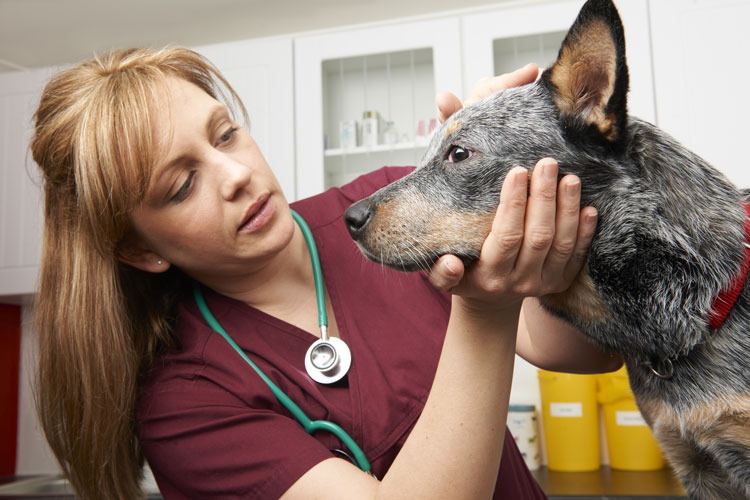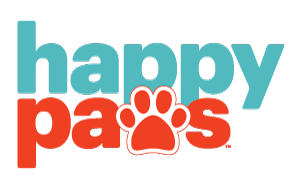By Tracey L. Deiss, DVM
The word anesthesia is of Greek etymology and means “without sensation.” It is defined as the condition of not feeling pain, with or without the loss of consciousness.
When we think about pain in veterinary medicine, we often consider the physical suffering or discomfort caused by illness or injury but often overlook the equally important emotional and psychological component. Veterinary visit and hospitalization fear, anxiety, and stress (FAS) affects many of our patients and can be compounded by being separated from care givers, unfamiliar environments with loud sounds, unusual lighting, strange smells and people, and the presence of other animals. 1
As good stewards of the anesthetic continuum of care, we partner with pet caregivers in managing the emotional and physical components of FAS and pain before arrival and upon discharge from the veterinary hospital and partner with our VHTs in the time between. While most of us worry about the induction and maintenance phases of the anesthesia, it’s important to remember that between 47 percent and 60 percent of anesthetic-related complications and deaths occur in the recovery phase. Maximizing a smooth return to consciousness is essential for patient wellbeing since prolonged or rough recoveries can harm the patient and the surgical site as well as compromise the cardiovascular and respiratory systems. 2
Close your eyes for a moment and picture this: A tranquil post-op recovery ward filled with resting patients. Sounds like a dream, right? What if I shared with you that patients having an anti-emetic added to their pre-medication protocol, especially protocols containing highly “barfogenic” drugs like opioids, have smoother recoveries compared to those without. In a study looking at Cerenia® (maropitant citrate) injectable given in the perioperative period for the prevention of vomiting caused by emetogenic medications, Cerenia-treated dogs recovered smoothly, meaning they were lying comfortably without vocalization or panting and had a relaxed posture. Two dogs in the placebo-treated group experienced a rough recovery in the first 30 minutes, characterized by thrashing, paddling, shaking, and vocalizing; 25 percent of placebo dogs recovered moderately, meaning they exhibited a hunched posture along with panting and frequently changed positions. 3 A post-op patient lying comfortably, without vocalization, panting, or a hunched position is a rare moment of Zen for every veterinary health team. Bonus: Improving the quality of recovery may allow dogs to be discharged sooner and is less worrisome for the pet owner. 4
Another important attribute of the recovery period for pets and their people is a swift return to normal behaviors, like eating. Quick return to feeding indicates that our canine patients are most likely FAS-free and helps maintain normal gastrointestinal integrity and microbiome health; supports the immune system; and improves tissue healing. 5,6 In addition, return to feeding is crucial for glucose regulation in diabetic patients and prevention of hypoglycemia in toy breeds and young patients. In the previously mentioned study, 66.7 percent of canine patients receiving Cerenia returned to feeding at 6 hours compared to 33.3 percent of placebo-treated patients. By post-op hour 20, 93 percent of Cerenia-treated patients returned to normal feeding vs. 46 percent of placebo-treated dogs. Additionally, the average amount of food consumed by the Cerenia-treated patients (190 grams) was nearly 5 times that consumed by placebo-treated patients (39.1 grams).3
Achieving smoother recoveries and quicker return to feeding by preventing perioperative vomiting, benefits our team members as well. Perioperative vomiting causes our technician to have increased worry and concern about patient wellbeing and negatively affects client interaction and satisfaction. Cleaning up after a vomiting patient increases workload and redirects focus on other patients, which negatively affects veterinary team members’ efficiency and wellbeing. 7
Managing FAS in the anesthetic continuum of care is beneficial to our patients, pet care givers, and practice, as is being an equal opportunity advocate of perioperative vomiting prevention for all patients. Reducing fear, anxiety, and stress through implementation of perioperative vomiting protocols can help us in our journey from Anesthesia to Zen.
To download an expert panel review of the benefits of preventing perioperative vomiting and learn more about Cerenia® (maropitant citrate) injectable for prevention of vomiting from emetogens like opioids, visit relievePOV.com.
IMPORTANT SAFETY INFORMATION: Use CERENIA Injectable subcutaneously for acute vomiting in dogs 2 to 4 months of age or either subcutaneously or intravenously in dogs 4 months of age and older. Safe use has not been evaluated in dogs with gastrointestinal obstruction, or those that have ingested toxins. Use with caution in dogs with hepatic dysfunction. Pain and vocalization upon injection is a common side effect. In people, topical exposure may elicit localized allergic skin reactions, and repeated or prolonged exposure may lead to skin sensitization. See full Prescribing Information, CereniaPI.com.
- Riemer, S.; Heritier, C.; Windschnurer, I.; Pratsch, L.; Arhant, C.; Affenzeller, N. A Review on Mitigating Fear and Aggression in Dogs and Cats in a Veterinary Setting. Animals 2021, 11, 158. https://doi.org/10.3390/ani11010158 AR-21729
- 2020 AAHA Anesthesia and Monitoring Guidelines for Dogs and Cats. AR-14689
- Ramsey, D, et al., Int J Appl Res Vet Med, 2014. AR-03556
- Ettinger S et al. Rethinking Perioperative Vomiting in Dogs. Zoetis Advisory Board. 2019 CER-00425
- Hay Kraus, BL., Vet Med (Auckl), 2017. AR-08024
- Kasiraj, AC, et al., FEMS Microbiol Ecol, 2016 AR-09087
- ZMR: Cerenia Quick Poll Survey Results Aggregate July 24 2017 TI-04680
All trademarks are the property of Zoetis Services LLC or company or a licensor unless otherwise noted.
© 2023 Zoetis Services LLC. All rights reserved. CER-00631






